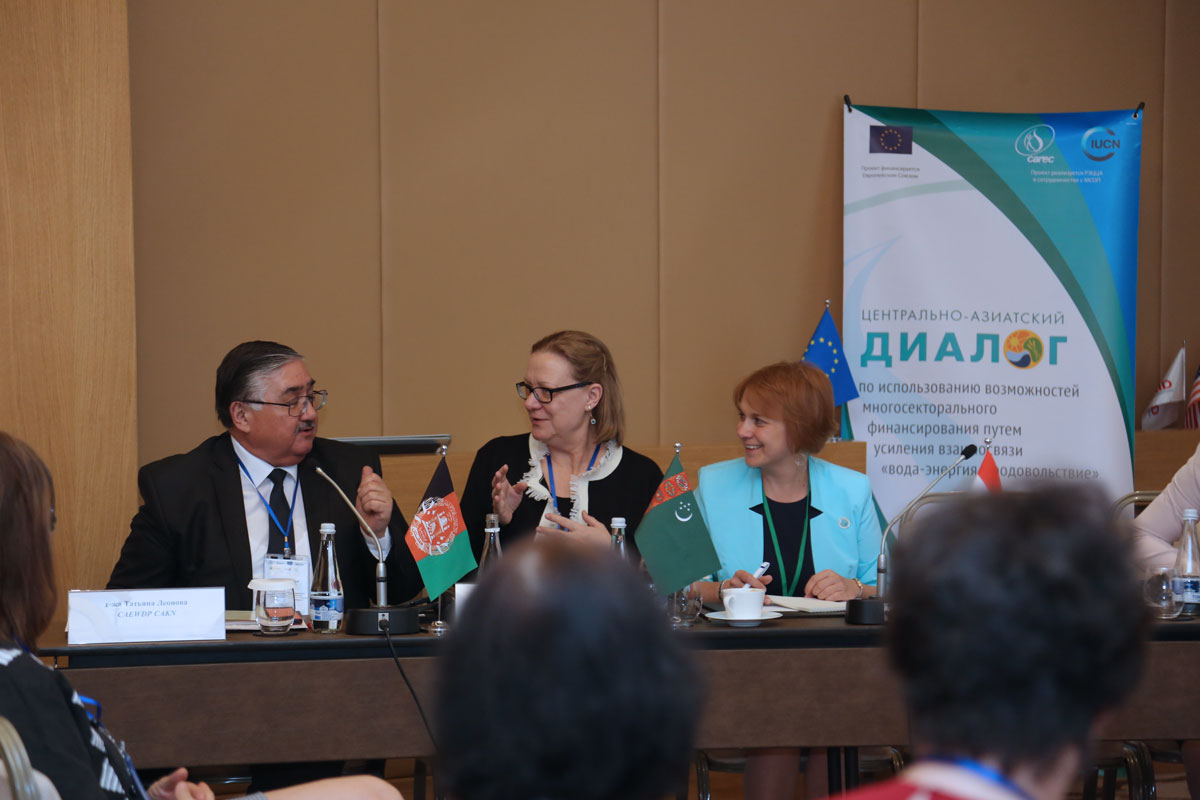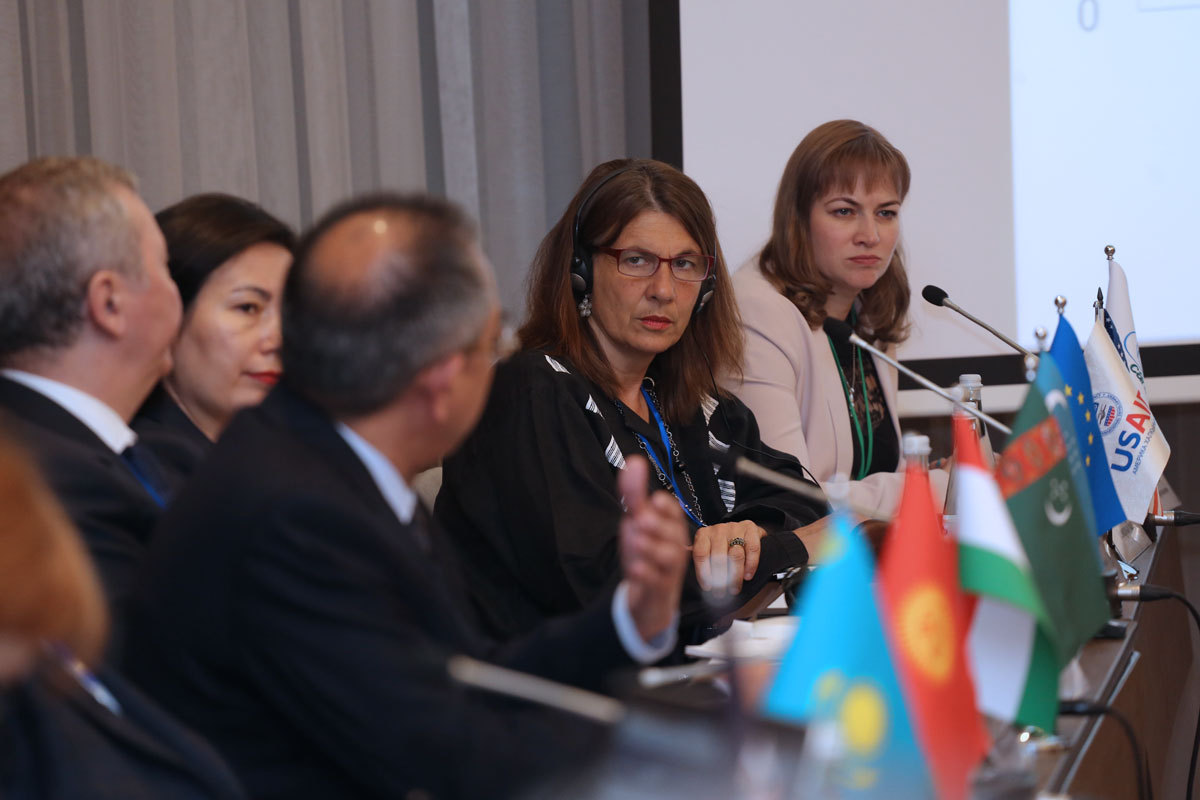
TASHKENT. An open dialogue on challenges and benefits that the Water-Energy-Food Security Nexus brings to Central Asia took place on 2 April 2019 at the Pre-Conference Academic Event of the Central Asia Climate Change Conference. During the discussion, participants confirmed that the strong academic and professional capacity is vital for achieving multisectoral approaches to adapt to the anticipated consequences of climate change and to ensure water, energy and food security in Central Asia.
Paola Agostini, Lead Natural Resources Specialist of the World Bank noted that "Central Asian countries are ahead of many others in understanding the importance of investing in human capital to address the nexus of climate change adaptation, water and energy. Creating the next generation of leaders of Central Asia that understand that natural capital is a fundamental element for the wealth and prosperity of a nation is a key step. This academic event is incredibly important and timing if we want to have more resilient landscapes in Central Asia”. It is essential to engage future specialists who will soon influence the decisions on economic development, water and natural resources management and cooperation, by identifying Nexus solutions for complex environmental and development problems.
The survey of the key stakeholders conducted in Central Asia as part of the EU Nexus Central Asia Dialogue Project revealed that knowledge and capacity on the Water-Energy-Food Security Nexus remain low in Central Asia. Demonstrating the benefits of the Nexus approach through pilot projects in the region will be the key to generating the evidence and political commitment needed for multisectoral planning, decision-making and implementation. Coupled with concrete training workshops and modules as well as institutional capacity building, current and future decision makers will be able to use the modern tools that would enable them to make informed decisions and negotiate important trade-offs between water, energy and food sectors.
There are no special educational programmes on the Nexus approach in the region. The knowledge products developed under the EU Global Nexus Dialogues Programme are available for educators and other stakeholders from Central Asia. By sharing regional and country-specific perspectives and discussing capacity gaps, this discussion revealed an interest to utilize the Water-Energy-Food Security Nexus as a framework that calls for the involvement of the academia as an essential element of multi-sectoral cooperation.
Ms Saule Zeinolla Zhanatovna, Professor of the Public Administration Academy under the President of the Republic of Kazakhstan noted: “Sharing and learning from experiences of different regions in the world greatly improves the understanding of the Nexus approach, which could lead to holding specific education sessions at our Academy to foster collaboration of three Nexus sectors – water, energy and food.”
About 60 educators, researchers and scientists from European and Central Asian countries as well as from Afghanistan, representatives from the regional and international organisations discussed the gaps and opportunities for the Nexus approach education. The participants agreed to include capacity building recommendations into Nexus Policy briefs and training modules, which are currently under development by the Nexus project team.

The meeting was organized within the Project "Central Asia Nexus Dialogue Project: Fostering Water, Energy and Food Security Nexus Dialogue and Multi-Sector Investment", which is part of the EU Global Nexus Dialogues Programme and CAREC-USAID project Smart Waters. The Central Asia Nexus Dialogue project is funded by the European Union and implemented by the Regional Environmental Centre of Central Asia in partnership with the International Union for Conservation of Nature and with the support of the Executive Committee of International Fund for Saving the Aral Sea. Phase I will last until December 2019 (total budget: €1.52 million; EU contribution: €1.3 million).

